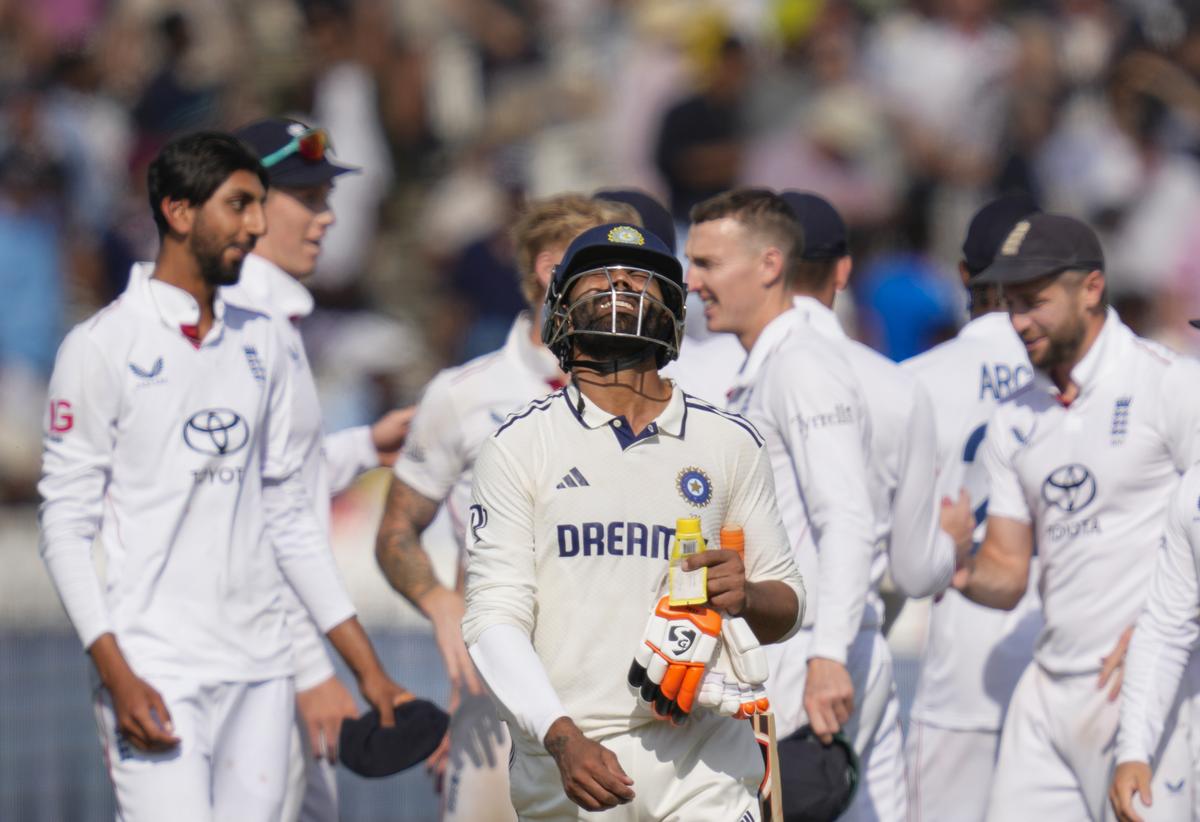ENG vs IND, Lord’s Test: A bail falls, and with it a brave resistance
There are finishes, and then there is Lord’s on a fifth evening: shadows lengthening, tension thickening, history murmuring through the Pavilion’s brickwork. On this stage, Ben Stokes’s England seized a 2-1 lead in the Anderson–Tendulkar Trophy, but only after being made to squirm, sweat, and finally exhale — thanks to Ravindra Jadeja’s monkish defiance.
Chasing 193, India collapsed to 112 for eight. The margin suggests routine; the theatre suggested otherwise. Jadeja, almost immovable, stitched together two dogged partnerships — first with Jasprit Bumrah (5, 54b), then with Mohammed Siraj (4, 30b) — stretching more than 30 overs. That the target came within 30 spoke less to India’s depth than to one man’s refusal to budge.
Jadeja’s 61 from 181 was not an innings for highlight reels. But it was cricket at its rawest: attritional, methodical, and strangely beautiful.
Stokes, of course, bowled. From the Nursery End, he wheeled away tirelessly, as though performing a rite. His three wickets will fill the scorebook, but it was his intent — to shoulder the burden alone — that defined him, again.
And then — anticlimax. The end came not with a yorker splitting the stumps or a flying catch at slips. It came with a defensive prod, the sort one sees in coaching manuals. The ball trickled back toward the stumps — not fast, not vengeful, almost sheepish. It nudged the base, and after a moment’s deliberation, one bail wobbled and fell, like an old general finally conceding defeat.
The hand behind it was Shoaib Bashir’s — called on after tea, finger strapped, series-ending injury looming. His ball to Siraj was functional, but its effect was terminal. His celebration was unfiltered joy, as though unaware that his moment had just entered the game’s long memory.
The scorebook will record it in four dry words: Siraj b Bashir 4. What it will not capture is the silence that fell across the Lord’s balcony, the slow walk of Jadeja back to the dressing room, or the look on Stokes’s face — half-proud, half-spent, as if he’d won a war he no longer wished to fight.
ALSO READ: IND vs ENG, 3rd Test: England pips India to series lead despite Jadeja’s lone battle
There was, in the day’s dying light, a faint echo of Cardiff in 2009, where Monty Panesar and James Anderson, faces blank and forward presses tighter still, stonewalled Australia for 69 deliveries to draw a Test. That too was less about heroism than refusal — less about the scoreboard than about two men, out of place and out of time, holding back the tide.

India’s Ravindra Jadeja reacts as he walks off the field after the team lost the third test cricket match against England, at the Lord’s.
| Photo Credit:
R SENTHILKUMAR/PTI
India’s Ravindra Jadeja reacts as he walks off the field after the team lost the third test cricket match against England, at the Lord’s.
| Photo Credit:
R SENTHILKUMAR/PTI
Jadeja and Siraj didn’t quite get there. But in their obstinacy — in every leave, block, and inside edge — they reminded us that Test cricket still lives longest in these moments: neither victory nor collapse, but a quiet, stubborn contest with inevitability.
Lord’s will be hard to top — not merely for its climax, but for what it laid bare: that Test cricket’s truth lies less in spectacle than in suspense, in slow turnings of fate rather than quick twists. At its best, it doesn’t merely thrill — it lingers.